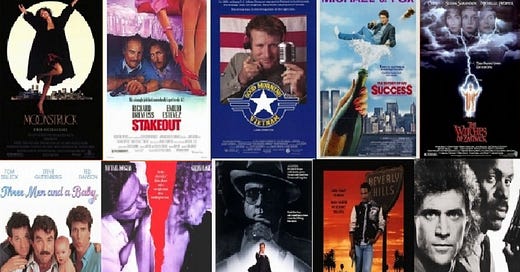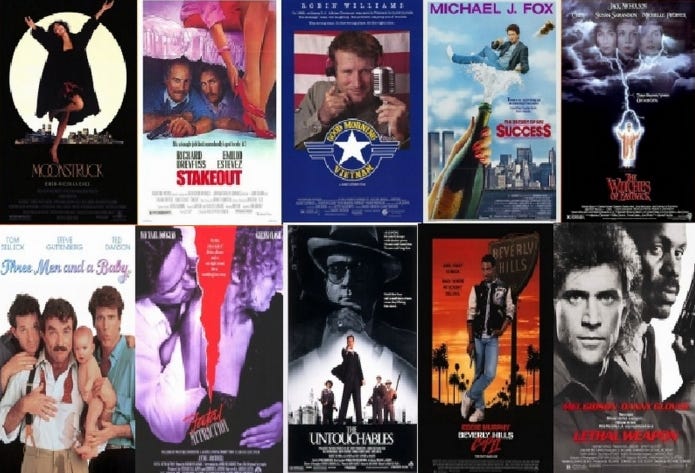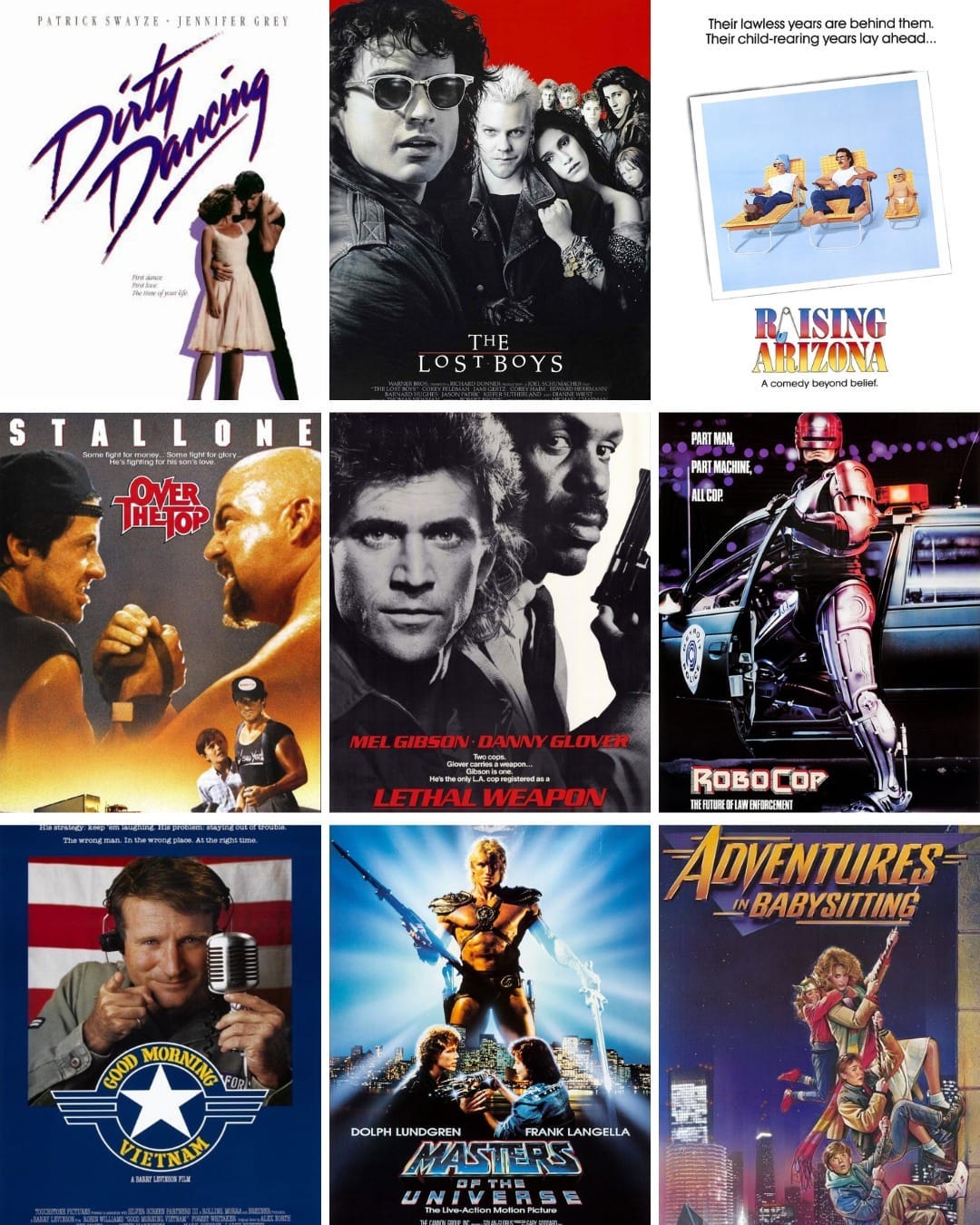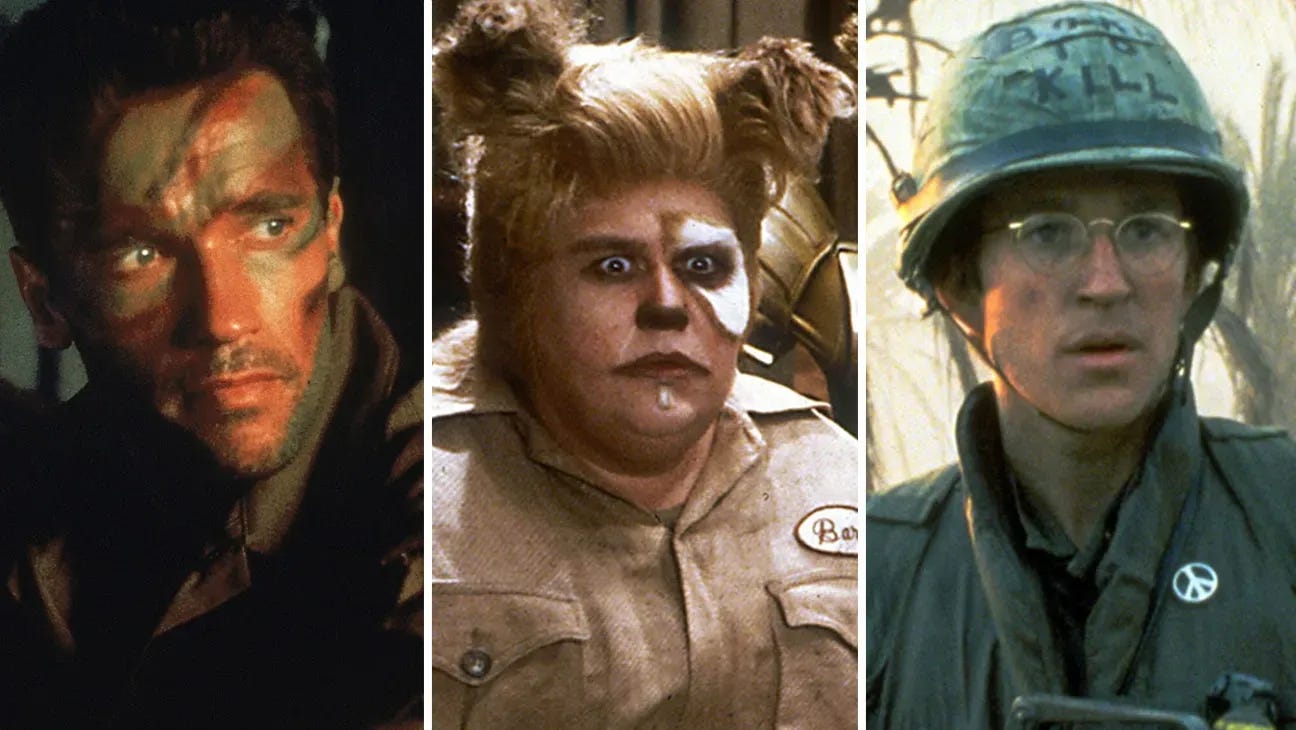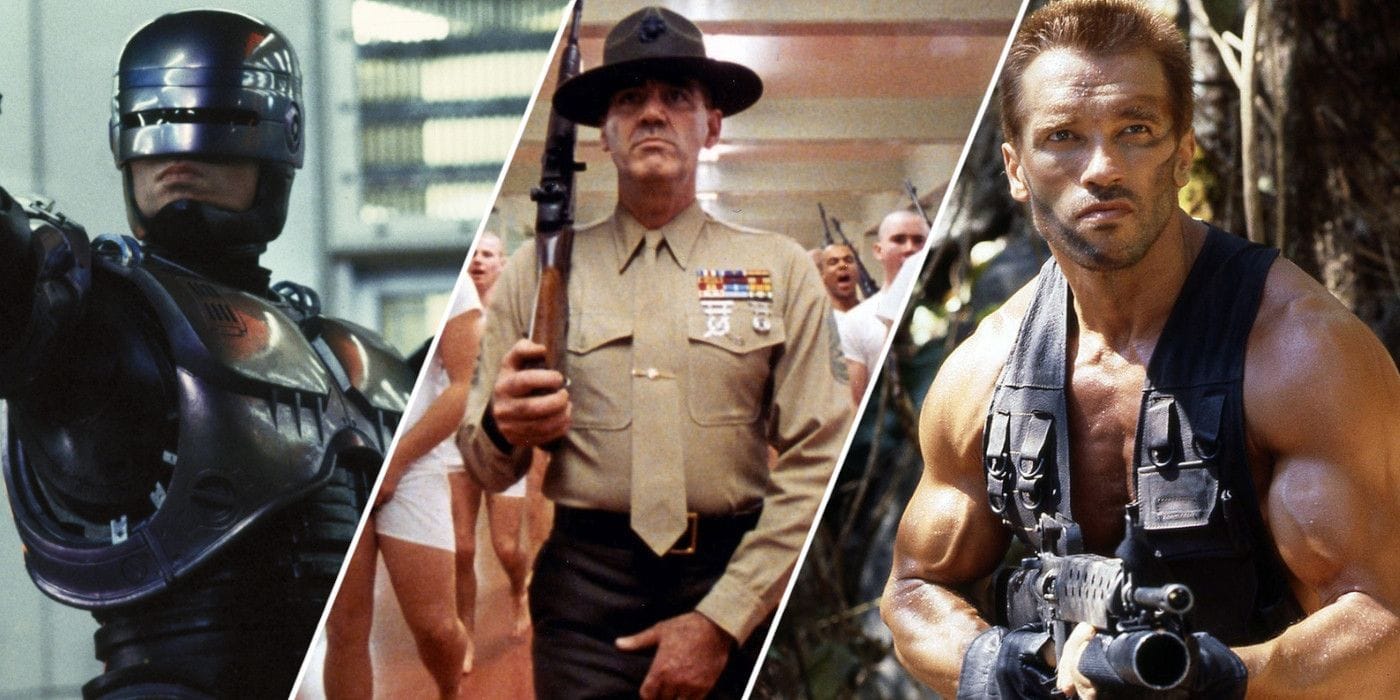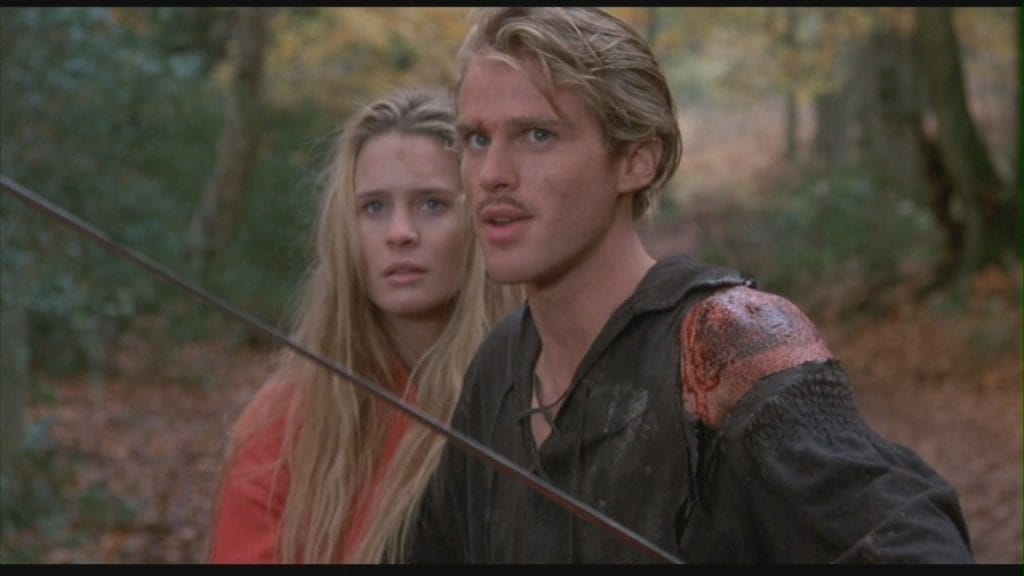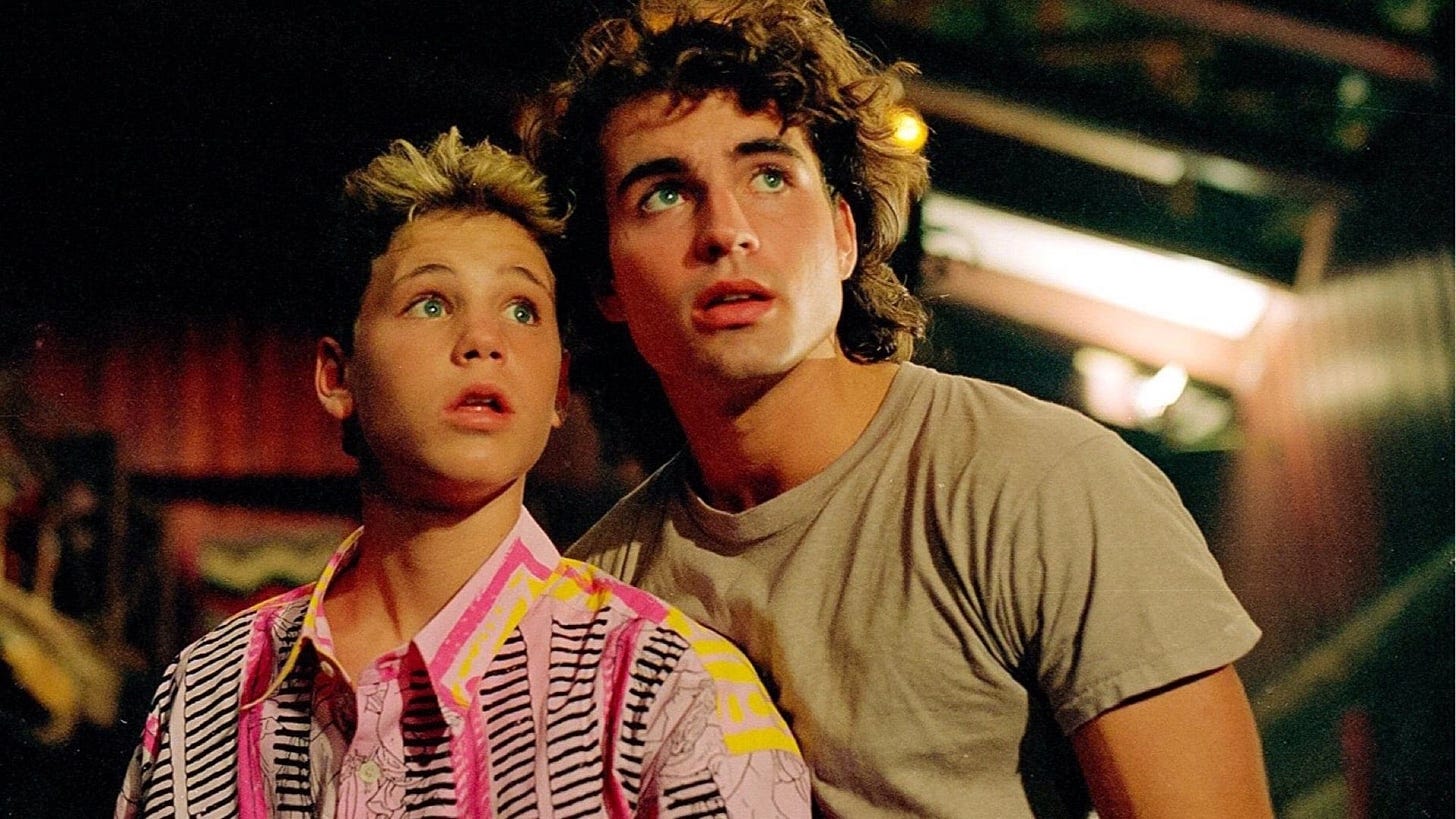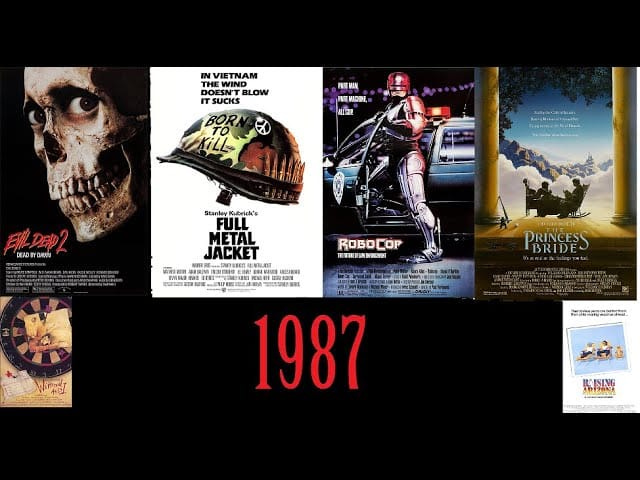1987: A Blockbuster Year for Movies That Shaped Pop Culture
1987 was a pivotal year for movies. It was a year that marked a significant shift in cinematic history, producing an array of films that not only entertained but also left a lasting cultural impact.
The power of cinema to shape our lives and inform our experiences cannot be overstated. From the first time we step into a movie theater to the films we watch repeatedly at home, movies can transport us, move us, and change how we see the world. The movies I've watched have been a constant source of joy, comfort, and inspiration. They've made me laugh, cry, and think deeply about the human condition. And when I look back on the years that have been particularly influential in cinema, one stands out: 1987.
My human experience on this earth has often been informed and shaped by the films I have watched throughout my life. From remembering the first movie I ever saw in the movie theatre, to the movies I have watched growing up with my sister, seeing them with my friends, or now streaming them. Having said that, 1987 was a pivotal year for movies. It was a year that marked a significant shift in cinematic history, producing an array of films that not only entertained but also left a lasting cultural impact. It was a year where storytelling, innovation, and star power converged, creating some of the most memorable and influential films ever made.
As long as I can remember, I wanted to be part of that world, yet life steered me in another way and led me to where I am now. But full circle does not describe the essential place I find myself going back to these moments when it seemed like everything was new, and I might one day be lucky enough to participate in the adventures I saw on the silver screen. Even if that silver screen ended up being a tiny thirteen-inch color TV we all crowded around to watch Corey Feldman try to slay vampires like Kiefer Sutherland.
The 1980s were a transformative decade for cinema, marked by rapid technological advancements, cultural shifts, and the emergence of new genres and storytelling techniques. This backdrop set the stage for 1987, a year that stands out for its diverse and influential film slate. The movies released in 1987 captured the imagination of audiences worldwide, offering a mix of action, comedy, horror, drama, and science fiction that catered to a wide range of tastes.
It's hard to overstate how incredible 1987 was for movies. From iconic blockbusters to cult classics, from heartwarming family films to gritty dramas, the sheer diversity and quality of the movies released that year is staggering. It was a year that gave us unforgettable characters, quotable dialogue, groundbreaking special effects, and soundtracks that have stood the test of time. For those of us who grew up in the '80s and '90s, many of these films have become an integral part of our childhoods and cultural lexicon. They're the movies we watched repeatedly on VHS, the ones we quoted with our friends on the playground, the ones that made us dream of adventure and romance, and the magic of the movies.
As a child, I was always drawn to the world of movies. Something about the larger-than-life characters, the thrilling adventures, and the visual spectacle captured my imagination in a way nothing else could. I dreamed of being a part of that world, creating my own stories and bringing them to life on the big screen. While life ultimately led me down a different path, I've never lost that sense of wonder and excitement that movies instilled in me from a young age.
Some of my earliest and most formative movie-watching experiences revolve around the 1987 films. I remember huddling around a small TV with my friends to watch The Lost Boys, marveling at the cool vampires and the comic book-style action. I remember being terrified and thrilled by the nightmare-inducing imagery of A Nightmare on Elm Street 3: Dream Warriors. And I remember laughing until my sides hurt at the hilarious meta-humor of "Spaceballs," a movie that rewarded repeat viewings and endless quoting.
These films, and so many others from that year, weren't just entertaining diversions. They shared experiences that bonded me with my friends and family, sparked conversations and inside jokes, and made me feel like I was part of something larger than myself. Even now, decades later, I find myself returning to these movies with a sense of nostalgia and appreciation for how they shaped my taste and worldview. They're a reminder of a time when everything felt new and exciting, the possibilities of storytelling seemed endless, and the magic of the movies was at its most potent.
The Diversity of Genres
One of the things that makes 1987 such a remarkable year for movies is the sheer diversity of genres represented. No matter what your taste in films, there was something for everyone. If you were in the mood for a lighthearted family comedy, you had options like Three Men and a Baby, The Princess Bride, and Mannequin. These films offered a perfect blend of humor, heart, and whimsy, with memorable characters and quotable dialogue that have stood the test of time.
For those who preferred movies with a bit more edge and intensity, 1987 also had plenty to offer. Action fans were treated to the high-octane thrills of Lethal Weapon and Predator, two films that redefined the genre with their innovative special effects, charismatic leads, and quotable one-liners. Horror fans had their pick of nightmare fuel, from the gruesome practical effects of Hellraiser to the campy fun of The Lost Boys to the surreal terror of A Nightmare on Elm Street 3: Dream Warriors.
For those who appreciated a good love story, 1987 did not disappoint. Dirty Dancing became a cultural phenomenon with its steamy dance numbers and swoon-worthy romance, while Moonstruck offered a more mature and nuanced take on love and relationships. Even the teen comedy Can't Buy Me Love had a surprisingly sweet and heartfelt story at its core, elevating it above its genre trappings.
The diversity of genres on display in 1987 is a testament to the creativity and versatility of the filmmakers working at the time. They weren't afraid to take risks, to blend genres, and to push the boundaries of what was possible on screen. The result was a cinematic landscape that felt vibrant, exciting, and endlessly entertaining.
Iconic Characters and Performances
Another reason the 1987 films have endured so well is the iconic characters and performances they introduced into the cultural zeitgeist. These characters felt larger than life and lept off the screen into our imaginations. They were brought to life by actors at the top of their game, delivering performances that have become the stuff of legend.
Take, for example, the character of Gordon Gekko in Wall Street. Played with slimy charisma by Michael Douglas, Gekko became the embodiment of '80s excess and greed, with his "greed is good" mantra becoming a defining catchphrase of the era. Douglas won an Academy Award for his performance, and the character has since become a pop culture touchstone, referenced and parodied in countless film and television works.
Or consider the dynamic duo of Riggs and Murtaugh in Lethal Weapon. Played by Mel Gibson and Danny Glover, respectively, these mismatched partners redefined the buddy cop formula with their crackling chemistry, rapid-fire banter, and death-defying stunts. The film spawned a franchise that would go on to span four movies and a TV series, but it all started with the electric performances of Gibson and Glover in the original.
And then there's Westley's character in The Princess Bride. Cary Elwes plays Westley with a dashing charm. Westley is the ultimate romantic hero, a swashbuckling adventurer who will stop at nothing to rescue his true love. His iconic lines, from "As you wish" to "Inconceivable!", have become part of the cultural lexicon, and the character has inspired countless imitators and homages in the years since.
These are just a few examples of the many memorable characters and performances that emerged from the 1987 films. From the manic energy of Robin Williams in Good Morning, Vietnam to the steely determination of Veronica Cartwright in The Witches of Eastwick to the robotic stoicism of Peter Weller in RoboCop, these performances have become an indelible part of cinematic history.
Childhood Nostalgia and Family Favorites
For many of us who grew up in the '80s and '90s, the films of 1987 hold a special place in our hearts as cherished childhood favorites. These were the movies we watched repeatedly on VHS, the ones we begged our parents to rent from the video store, and those that became integral to our early moviegoing experiences.
Animated films like The Brave Little Toaster and The Chipmunk Adventure entertained us with their colorful characters, catchy musical numbers, and heartwarming stories. They taught us valuable lessons about friendship, perseverance, and the power of imagination, all wrapped up in a delightful package of animation and song.
Live-action family films like Harry and the Hendersons and The Monster Squad offer a perfect blend of humor, heart, and mild scares. They introduce us to lovable creatures and relatable kid heroes. They make us laugh, cheer, and feel like we, too, could face our fears and save the day, just like the characters on screen.
And then there were the films that became staples of sleepovers and birthday parties, the ones we watched so many times we could recite the dialogue from memory. The Princess Bride was a particular favorite, with its witty script, charming cast, and timeless story of true love conquering all. It's a film that has only grown in stature and popularity over the years, with new generations discovering its magic and falling under its spell.
These childhood favorites weren't just entertaining diversions. They were formative experiences that shaped our tastes, imaginations, and sense of what was possible in the world of movies. They gave us characters to look up to, stories to get lost in, and memories to cherish forever. And as we've grown older and introduced these films to our children, we've had the joy of seeing them discover the same magic and wonder we did all those years ago.
Groundbreaking Special Effects and Action
1987 was a landmark year for special effects and action in film, with movies that pushed the boundaries of what was possible on screen and set new standards for the industry. From the practical effects wizardry of Predator to the futuristic cityscape of RoboCop to the over-the-top stunts of Lethal Weapon, these films wowed audiences with their technical prowess and thrilling set pieces.
In Predator, director John McTiernan and his team created one of the most iconic movie monsters ever, a hulking alien hunter with advanced technology and a thirst for human trophies. The creature was brought to life through a combination of practical effects, including a detailed latex suit worn by actor Kevin Peter Hall and innovative camera techniques that made it seem like the Predator was truly invisible. The result was a villain that felt tangible and terrifyingly otherworldly and a film that redefined the sci-fi action genre.
RoboCop, meanwhile, used a blend of practical effects and early computer animation to create a dystopian vision of future Detroit, complete with robotic law enforcement and corporate corruption. The film's titular character, played by Peter Weller, was a marvel of prosthetic makeup and robotic costume design, giving him a genuinely cyborg-like, unsettling, and awe-inspiring appearance. The film's action sequences, including a memorable showdown in a drug factory, set a new bar for intensity and inventiveness in the genre.
And then there was Lethal Weapon, which took the buddy cop formula to new heights with its high-energy action and death-defying stunts. The film's climax, which featured Mel Gibson's character leaping from a building while firing two guns at once, became an instant classic and a testament to the fearlessness and skill of the film's stunt team. The success of Lethal Weapon would inspire countless imitators in the years to come, but few could match its perfect blend of humor, heart, and adrenaline-pumping action.
These groundbreaking effects and action sequences weren't just there for the show. They were in service of the story and the characters, adding to the film's themes and emotional impact. In Predator, the creature's otherworldly nature served as a metaphor for the unknown threats lurking in the jungle, and the film's action was a test of the character's strength and resolve. In RoboCop, the cyborg hero's struggle to hold onto his humanity in the face of corporate greed and corruption was reflected in the film's gritty, violent world. In "Lethal Weapon," the over-the-top action perfectly matched the film's themes of friendship, loyalty, and the thin line between sanity and madness.
Quotable Dialogue and Memorable Soundtracks
The films of 1987 are remembered not just for their visual spectacle and thrilling action but also for their endlessly quotable dialogue and iconic soundtracks. These elements have helped cement these films as cultural touchstones, ensuring they remain beloved and relevant decades after their initial release.
Few films can match the wit and charm of The Princess Bride regarding quotable dialogue. Nearly every line in the movie has become a classic, from the rhyming "mawidge" speech to the endlessly useful "As you wish" to the immortal "My name is Inigo Montoya, you killed my father, prepare to die." These lines have been quoted, memed, and celebrated by fans for decades, a testament to the enduring power of the film's clever script and charismatic performances.
Other films from 1987 have also given us lines that have become part of the cultural lexicon. "Wall Street" gave us the iconic "Greed is good" speech, a defining moment of '80s excess that has been referenced and parodied countless times in the years since. Dirty Dancing gave us the swoon-worthy "Nobody Puts Baby in a Corner," a line that has become shorthand for standing up for oneself and defying expectations. And RoboCop gave us the hilariously deadpan "I'd buy that for a dollar!" a catchphrase that perfectly encapsulates the film's satirical take on consumerism and media.
But it wasn't just the dialogue that made these films so memorable. The soundtracks of many 1987 films have become just as iconic as the movies themselves. Dirty Dancing featured a mix of classic '60s tunes and new songs like "(I've Had) The Time of My Life," which became a massive hit and a staple of dance parties and karaoke nights. The Lost Boys had a killer soundtrack of hard rock and gothic pop, with songs by INXS, Echo & The Bunnymen, and Gerard McMann that perfectly captured the film's edgy, rebellious spirit. And La Bamba introduced a new generation to the music of Ritchie Valens, with its toe-tapping title track and poignant renditions of Valens' other hits.
These soundtracks weren't just background noise. They were integral to the film's emotional and thematic impact, adding depth and resonance to critical moments and character arcs. The music of Dirty Dancing underscored the film's themes of love, self-expression, and the transformative power of dance. The hard-edged rock of The Lost Boys reflected the film's dark, rebellious tone and the characters' struggle to hold onto their humanity in the face of supernatural forces. The music of La Bamba served as a celebration of Ritchie Valens' life and legacy, a reminder of the enduring power of his art and the tragedy of his untimely death.
The Legacy of 1987
The impact of the 1987 films can still be felt today, more than thirty years after their initial release. These movies have become beloved classics, celebrated by generations of fans and inspiring countless filmmakers and artists. They've spawned franchises, stage adaptations, and endless pop culture references, ensuring their legacy will endure for years.
Some films, like The Princess Bride and Dirty Dancing, have become true cultural phenomena, with a devoted fanbase that spans generations. They've inspired everything from memes and GIFs to Halloween costumes and wedding themes, and their influence can be seen in countless works of film, television, and literature. These films have a timeless quality that speaks to the universal human experiences of love and loss and the power of storytelling.
Other films, like Predator and RoboCop, have become iconic examples of their respective genres, inspiring countless imitators and homages. They've spawned franchises that have continued to explore and expand their worlds, with sequels, reboots, and spin-offs that have introduced new generations to their thrilling action and memorable characters. These films are a testament to the enduring power of genre storytelling and how it can evolve and adapt over time.
Then, there are films whose influence can be seen in the work of countless filmmakers and artists who have followed in their footsteps. The kinetic action and buddy cop dynamic of Lethal Weapon can be seen in everything from Bad Boys to Rush Hour to The Nice Guys. The satirical wit and meta-humor of Spaceballs have inspired countless parodies and spoofs, from Scary Movie to The Lego Movie. The practical effects wizardry of Predator and RoboCop have set the bar for what is possible in genre filmmaking, inspiring a new generation of moviemakers to push the boundaries of what can be achieved on screen.
However, the most enduring legacy of the films of 1987 is how they have shaped the childhoods and imaginations of so many people worldwide. For those of us who grew up with these movies, they are more than just entertaining diversions or cultural artifacts. They are cherished memories, shared experiences, and formative influences that have helped to make us who we are today. They have given us characters to look up to, stories to get lost in, and a love of cinema that will stay with us for a lifetime.
1987 was a remarkable year for movies, one that deserves to be celebrated and remembered for its incredible contributions to the art form. From the diversity of its genres to the iconic characters and performances it introduced, from the groundbreaking special effects and action to the quotable dialogue and memorable soundtracks, the films of 1987 represent the best of what cinema has to offer. They are a testament to the power of storytelling to entertain, move, and inspire, and they have left an indelible mark on the cultural landscape.
For those of us who grew up with these films, they are more than just nostalgic favorites. They are a part of our personal and cultural history, a reminder of how movies can shape our lives and understanding of the world. They are the films we watched with our friends and family, the ones we quoted and reenacted on the playground, the ones that made us laugh, cry, and dream of adventure and romance. They are a part of who we are and will always hold a special place in our hearts.
But even for those discovering these films for the first time, the movies of 1987 have so much to offer. They are a snapshot of a particular moment in time, a reflection of a generation's hopes, fears, and desires. They are a reminder of the enduring power of cinema to entertain and inspire, to challenge and provoke, to help us make sense of the world and our place in it. They celebrate the art form at its finest and are a testament to the incredible talents of the filmmakers, actors, and craftspeople who brought them to life.
As we look back on the films of 1987, it's easy to feel a sense of nostalgia and longing for a simpler time. But it's important to remember that these movies are more than just relics of the past. They are living, breathing works of art that resonate with audiences today and will continue to do so for generations to come. They remind us of the power of storytelling to connect us across time and space, to help us understand ourselves and each other, and to inspire us to dream big and imagine new possibilities.
So here's to the films of 1987 and to all the incredible movies that have shaped our lives and culture. May they continue to entertain, inspire, and move us for many years, and may we always keep sight of the magic and wonder they represent. They remind us why we fell in love with the movies in the first place and will always keep returning for more. They are a part of our history, identity, and shared cultural heritage, and they deserve to be celebrated and cherished.
In the end, the films of 1987 are more than just a collection of titles and trivia. They reflect who we are as a society, culture, and individuals. They are a reminder of the incredible power of cinema to shape our lives, our understanding of the world, and the enduring impact that great storytelling can have on us all. They are a part of our past, present, and future and will always hold a special place in our hearts and minds. So let us continue to celebrate and cherish these films and all the incredible movies that have come before and since. They are a testament to the magic and wonder of the movies and a reminder of why we will always return for more.

